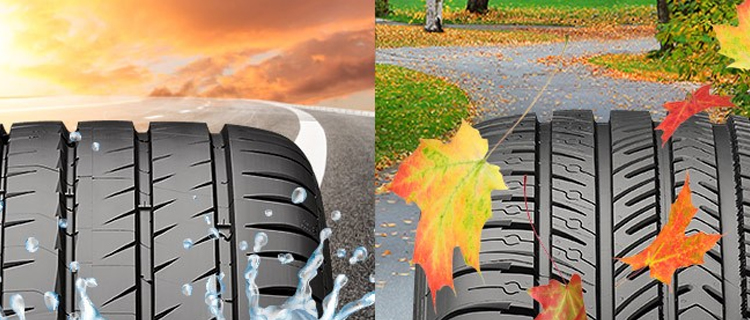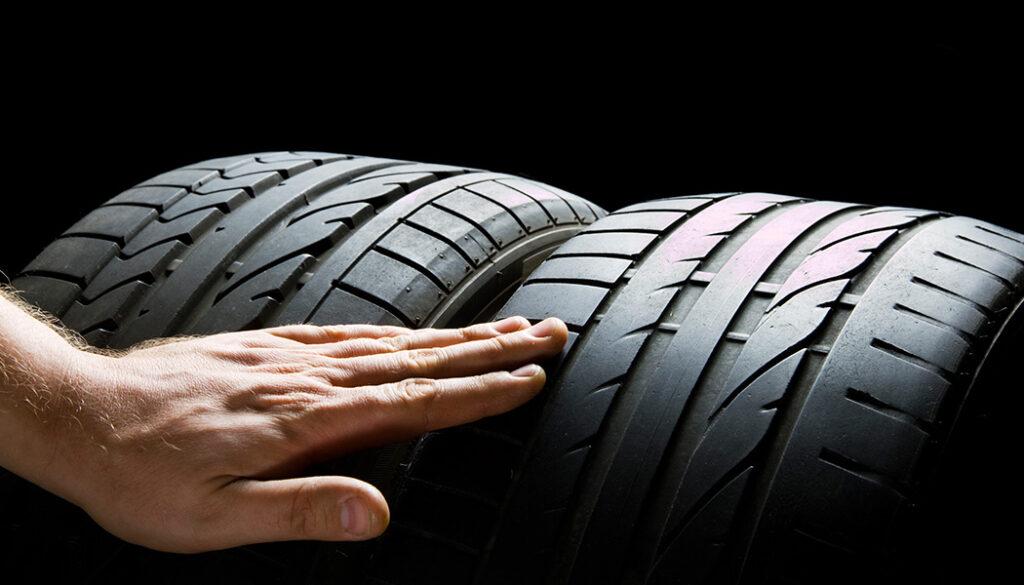Performance tires are geared towards better traction and handling, while all-season tires prioritize comfort and safety in a wider range of conditions. Choosing the right type of tire for your vehicle can make a significant difference in its performance, handling, and safety.
Two popular types of tires are performance tires and all-season tires. Understanding the differences between the two can help you make an informed purchase decision. Performance tires are designed for improved traction, handling, and responsiveness, particularly in wet or dry conditions, and are often found on sports cars and high-performance vehicles.
All-season tires offer a combination of performance, comfort, and safety across a wider range of temperatures and road conditions. They are commonly used on suvs, sedans, and compact cars, making them a more versatile choice for everyday driving. Ultimately, the choice between performance tires and all-season tires depends on your driving needs and priorities.

Credit: tirecraft.com
Performance Tires: What Are They?
Performance tires are designed to provide a higher level of handling, acceleration, and braking performance than all-season tires. These tires are mostly used for sports cars, high-performance sedans, and other high-end vehicles. The primary objective of performance tires is to enhance the driving experience by optimizing the car’s capabilities, especially on the racetrack and in aggressive driving conditions.
Here are some key points to understand about performance tires.
Definition And Explanation Of Performance Tires
- Performance tires are designed to provide more precise handling, better grip, and faster acceleration than regular all-season tires.
- These tires have a softer rubber compound than all-season tires, which allows them to grip the road better.
- Performance tires have a higher speed rating than all-season tires and usually have a w, y, or z speed rating.
- These tires are designed to improve the car’s handling and cornering performance. They have a larger contact patch, which means more rubber in contact with the road, providing more grip.
Characteristics That Make Performance Tires Unique
- Performance tires have a lower profile than all-season tires, which means a shorter sidewall. This enables the tire to have quicker steering response.
- These tires are directional or asymmetric, which means each tire has a specific direction of rotation. This design provides more precise handling and a better grip.
- Performance tires have a stiffer sidewall and a stronger internal construction that helps keep the tire in contact with the road at high speeds.
Benefits Of Using Performance Tires In Specific Driving Conditions
- Performance tires are ideal for summer driving conditions and provide excellent performance in dry and wet weather conditions.
- If you frequently drive on the racetrack, performance tires are the best choice for you. They are designed to handle extreme driving conditions and provide better acceleration and braking performance.
- Performance tires are suitable for drivers who want the ride quality and performance of a sports car.
- For drivers who live in areas that experience rainfall or wet roads, performance tires provide superior grip, unlike all-season tires, which tend to become slippery on wet surfaces.
Performance tires are the go-to option for drivers who want to enhance their driving experience and precision. With a dedicated focus on delivering speed, better handling, and acceleration, these tires offer a range of benefits that all-season tires can’t match.
All Season Tires: What Are They?
Overview Of All Season Tires And Their Primary Features
All season tires are designed to perform well in a variety of weather conditions. These tires offer a balance between summer and winter tires, which are designed for specific environments. The following are the primary features of all season tires:
- Tread pattern: All season tires have a tread pattern that is designed to provide good traction on both wet and dry roads.
- Rubber compound: The rubber compound used in all season tires is designed to be durable in a range of temperatures, from hot summers to colder winters.
- Sidewall construction: All season tires have a stronger sidewall construction than summer tires, but not as strong as winter tires. This helps to provide better handling and stability in a range of road conditions.
Comparison Between All Season Tires And Other Types Of Tires
All season tires are a compromise between summer and winter tires. The following are the key differences between all season tires and other types of tires:
- Summer tires: Summer tires provide excellent traction and handling on dry roads, but offer limited performance in wet or cold conditions. All season tires are a better choice for drivers who need good performance in a variety of conditions.
- Winter tires: Winter tires provide excellent traction and handling in snow and ice, but can be less effective on dry or wet roads. All season tires offer better all-round performance, making them a good choice for drivers who need to use their car in a range of weather conditions.
Typical Driving Situations Where All Season Tires Are A Good Choice
All season tires are a good choice for drivers who need to use their car in a variety of weather conditions. The following are some typical driving situations where all season tires are a good choice:
- Urban driving: All season tires provide good performance on both wet and dry roads, making them a good choice for drivers who do a lot of city driving.
- Moderate climates: All season tires are designed to perform well in moderate climates, where the temperature doesn’t drop below freezing too often.
- Occasional winter driving: All season tires are a good choice for drivers who don’t need to use their car in heavy snow or ice too often, but still want to be prepared for occasional winter driving conditions.
All season tires are a good compromise between summer and winter tires. They offer good performance in a range of weather conditions, making them a good choice for drivers who need to use their car in a variety of situations.
Factors To Consider When Choosing Tires
Choosing the right tires for your vehicle can make a significant difference in the driving experience, safety, and longevity of your tires. There are several factors to consider before making a purchase. Here are some of the most important factors to take into account:
Different Types Of Driving Environments And Conditions
- Think about the type of driving you usually do and the conditions you encounter.
- If you live in an area with mild weather and no extreme temperature changes, all-season tires may be suitable.
- If you live in an area with harsh winters, you may need dedicated winter tires to handle snow and ice.
- If you live in an area with hot summer temperatures, consider getting summer tires that offer better performance in high temperatures.
Handling And Grip Capabilities Of Different Tire Types
- Different tires offer different levels of handling and grip capabilities.
- Performance tires offer better cornering and handling at high speeds compared to all-season tires.
- All-season tires offer better grip in wet conditions and are designed to provide a smooth and comfortable ride.
- Winter tires have unique tread patterns designed to provide better traction in snowy and icy conditions.
- Off-road tires are designed to provide better performance and increased traction on rough and uneven terrain.
Variables That Can Affect Tire Performance And Longevity
- Improper air pressure can affect tire performance and shorten the lifespan of the tires.
- Overloading your vehicle can put additional stress on the tires, leading to wear and tear.
- Driving habits such as excessive speeding, hard braking, and aggressive cornering can all lead to increased wear and tear on your tires.
- Regular maintenance such as tire rotations, alignments, and balancing can help prolong the life of your tires.
- Quality of road surfaces and the weather conditions can also impact tire performance and lifespan.
Choosing the right tires for your vehicle can seem overwhelming, but by understanding the different factors involved, you can make an informed decision. By considering your driving environment, handling and grip capabilities, and potential variables that can affect tire performance and longevity, you can select the best tires for your needs.
Performance Tires Vs All Season Tires: Pros And Cons
When it comes to purchasing new tires for your car, you may face the dilemma of choosing between performance tires and all-season tires. Although both tire types are designed to keep your vehicle moving, they differ in terms of performance capabilities, suitability for driving styles, and weather conditions.
Comparative Analysis Of The Benefits And Drawbacks Of Each Tire Type
Performance Tires
Benefits:
- Designed for high-speed driving
- Improved handling and responsiveness
- Better grip on dry surfaces
- Enhanced cornering capabilities
- Stylish appearance
Drawbacks:
- Expensive compared to all-season tires
- Less durable than all-season tires
- Unsuited for cold climate areas
- Noisy on rough road surfaces
- Poor grip on wet surfaces
All Season Tires
Benefits:
- Suitable for various weather conditions
- Longer lasting than performance tires
- Quieter on the road
- Offers a smooth and comfortable ride
- Affordable compared to performance tires
Drawbacks:
- Limited high-speed performance capabilities
- Reduced handling and responsiveness
- Poor grip on slippery surfaces
- Less stylish appearance than performance tires
- Not ideal for high-performance sports cars
Performance Capabilities In Different Driving Scenarios, Such As Wet Or Dry Conditions
When it comes to dry conditions, performance tires are the clear winner. They offer better grip, cornering, and handling than all-season tires. On the other hand, all-season tires are more suitable for wet and cold conditions as they offer better traction in those situations.
In wet conditions, all-season tires perform better than performance tires due to their deeper tread grooves, which provide better water dispersion. In contrast, the performance tires tend to hydroplane more often due to their shallow grooves.
Suitability For Different Types Of Driving Styles
Performance tires are ideal for high-performance sports cars and enthusiasts who love driving fast and want better handling and cornering capabilities. On the other hand, all-season tires cater to drivers seeking a balance between performance and durability. They’re ideal for everyday use and provide a smooth and comfortable ride.
Both tire types have their pros and cons. If you live in an area with a warmer climate and love fast driving, performance tires would be the best option. However, if you’re looking for an all-rounder tire that can handle different weather conditions and provides durability, all-season tires would be the better choice.
Frequently Asked Questions Of Performance Tires Vs All Season
What Are Performance Tires?
Performance tires are high-performance tires that are designed to enhance the handling, braking, and cornering of your car. They have a softer rubber compound and a more aggressive tread pattern than standard all-season tires, which enables them to grip the road better and provide better handling.
What Are All-Season Tires?
All-season tires are designed to provide year-round performance and handling in a variety of weather conditions, including rain, light snow, and dry conditions. They feature a tougher rubber compound and a less aggressive tread pattern than performance tires, making them more durable but less responsive.
What Are The Benefits Of Performance Tires?
Performance tires have a number of benefits, including improved performance and handling, better braking, and enhanced cornering capabilities. They also offer greater responsiveness on the road and improve driver confidence.
What Are The Benefits Of All-Season Tires?
All-season tires are versatile and able to perform well in a variety of weather conditions. They offer improved fuel efficiency, longer tread life, and better grip in wet and snowy conditions. They are also more affordable and easier to find than performance tires.
Can I Use Performance Tires In All Seasons?
While performance tires can be used in all seasons, they are not recommended for use in cold or snowy conditions. They are designed for optimal performance in warm and dry conditions, and may not provide adequate traction on slick or snowy roads.
Can I Use All-Season Tires For Performance Driving?
All-season tires can handle moderate performance driving, but they are not designed for racing or high-performance driving. They have a more durable tire compound and less aggressive tread pattern, which can limit their ability to provide maximum grip and handling at high speeds.
Conclusion
Ultimately, the choice between performance tires and all-season tires boils down to your driving style and the weather conditions you typically face. Performance tires provide superior grip and handling for those who demand the best from their vehicles, but they may not be suitable for everyday use in harsh winter conditions or heavy rain.
On the other hand, all-season tires offer a compromise between performance and practicality, making them a popular choice for most drivers. While performance tires are better suited for track use, all-season tires are more versatile and can be used year-round.
However, it’s important to note that not all all-season tires are created equal, and some may perform better than others in winter conditions. Ultimately, the decision comes down to personal preference and your particular driving needs. So, take your time, weigh the pros and cons, and choose the tires that are right for you.

